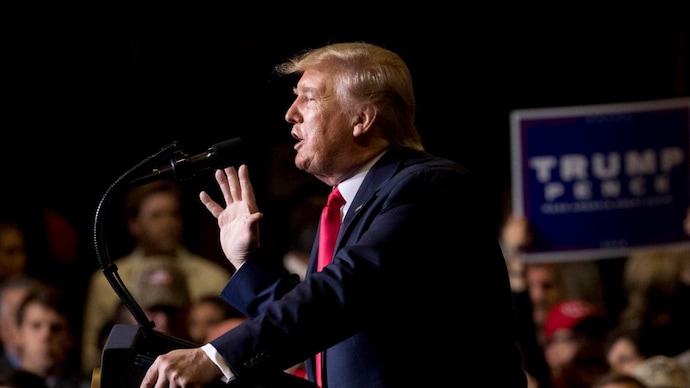
JPMorgan’s recent trial involving the $175 million acquisition of student aid startup Frank has stirred up some dramatic accusations. The bank is accusing the startup’s founder, Charlie Javice, of inflating user numbers to secure the deal, resulting in charges like wire fraud and conspiracy. However, Javice’s lawyer, José Baez, argues that JPMorgan’s “buyer’s remorse” post-acquisition is to blame for the fraud claims, not any fraudulent actions by the founder. According to Baez, JPMorgan was well aware of the true numbers before they signed the deal, and the charges stem from shifting regulations in the student loan sector.
The trial, taking place in Manhattan federal court, has sparked a fierce legal battle, with Baez accusing JPMorgan of failing to do their due diligence before purchasing Frank. This case may set significant legal precedents on how major banks handle acquisitions, especially in the highly scrutinized tech and financial sectors. The courtroom drama unfolds with intense scrutiny, and it could be a pivotal moment for future corporate acquisitions.
However, Javice’s defense, led by prominent attorney José Baez, takes a different tack. Baez argues that JPMorgan’s allegations stem from what he calls “buyer’s remorse.” According to Baez, JPMorgan had access to all of Frank’s data during an extensive due diligence process before the deal was finalized. He contends that the bank, despite being aware of the actual user numbers, proceeded with the acquisition and is now regretting its decision after changes in federal regulations regarding student loans impacted the industry.
Baez’s argument focuses on the idea that JPMorgan’s decision to file fraud charges is rooted in a desire to cover up their own lack of foresight in the acquisition. “They had access to all the information, and they chose to buy Frank,” Baez stated in his opening arguments. “This is not a case of fraud, it’s a case of buyer’s remorse, and that’s what this trial will ultimately reveal.”
The trial is taking place in Manhattan federal court, presided over by Judge Alvin Hellerstein, with jury selection taking place amidst a thorough vetting process to ensure impartiality. As the proceedings unfold, the case has drawn widespread attention not only for its potential legal ramifications but also for the broader implications it could have on corporate acquisitions and due diligence practices.
A Crucial Moment for Corporate Acquisitions
JPMorgan’s decision to acquire Frank was seen as a bold move to strengthen its position in the growing student loan and financial aid sector. The startup, founded by Javice in 2017, had positioned itself as a digital tool to simplify the financial aid application process for students, gaining significant traction among young users. However, what initially appeared to be a promising acquisition soon turned into a public legal battle.
Now, as the trial progresses, legal experts are watching closely to see how the case will impact future acquisitions in the tech and finance sectors. The outcome could set a precedent for how banks and other corporations approach acquisitions of high-growth startups, particularly in industries subject to rapid regulatory changes.
JPMorgan, for its part, is adamant that its claims of fraud are valid. In its court filings, the bank emphasizes that it would not have proceeded with the acquisition had it known the true extent of Frank’s user base. The bank also alleges that Javice and her team provided fabricated data to conceal the discrepancy, thus justifying the fraud charges.
The Role of Due Diligence
One of the key aspects of this trial is the question of due diligence. JPMorgan is one of the largest banks in the world, with vast resources dedicated to vetting potential acquisitions. The bank’s due diligence process typically involves a deep dive into a company’s financials, user data, and market positioning. Javice’s defense argues that JPMorgan had ample opportunity to detect any discrepancies in Frank’s user numbers and chose to overlook them in pursuit of the acquisition.
This raises a critical issue for corporate law: How much responsibility should an acquiring company bear when it chooses to proceed with a deal despite knowing of potential red flags? Baez’s defense suggests that JPMorgan’s failure to uncover the truth may have been due to their own negligence, rather than fraud on the part of the seller.
As the trial continues, both sides are expected to present expert witnesses, data analysis, and testimonies that will shape the legal landscape for corporate acquisitions moving forward.
What’s at Stake?
The outcome of this trial could have far-reaching consequences not only for Javice and JPMorgan but for the entire tech acquisition landscape. If the jury finds that JPMorgan acted recklessly in its due diligence process, it could send a strong message to corporate giants about the importance of thorough investigations before finalizing major deals. On the other hand, if the court sides with the bank, it could reinforce the idea that even the most detailed due diligence cannot shield startups from the risk of being accused of fraud if discrepancies are uncovered after the fact.
The Trial’s Broader Impact
This case also highlights the increasingly complex nature of corporate acquisitions in the tech industry, where rapid growth often outpaces regulatory clarity. The changing landscape of the student loan sector, with its shifting regulations and evolving market conditions, is a central issue in this case. As companies like JPMorgan increasingly look to digital startups to gain a competitive edge, the lessons learned from this trial could shape how future acquisitions are structured and executed.
For now, the jury will have to decide whether JPMorgan’s claims of fraud hold water or if this is indeed a case of buyer’s remorse. As the legal battle continues, all eyes are on the courtroom, where both corporate giants and startups alike are watching closely.







